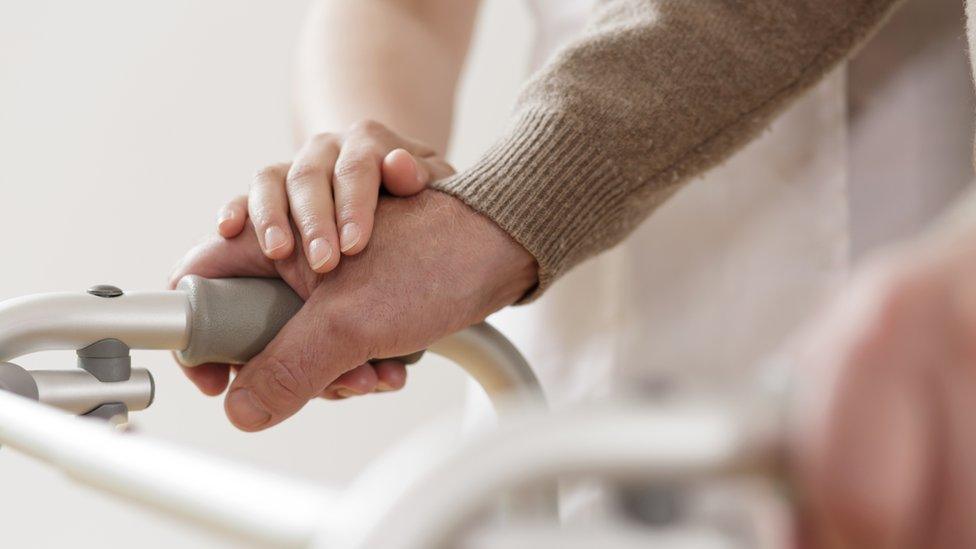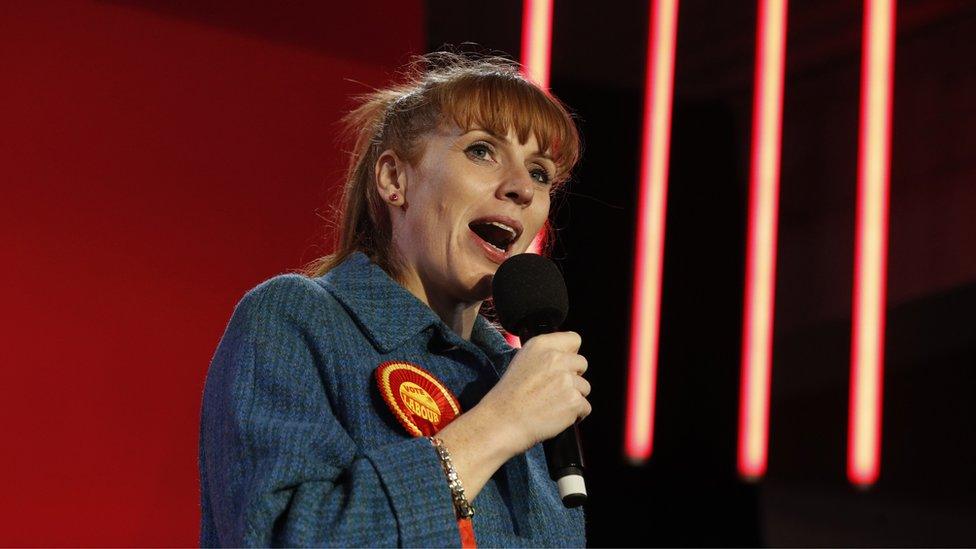Labour urges pay rises for care workers for 'Covid sacrifices'
- Published

Labour is calling for guaranteed pay rises for care workers in England as the party prepares for what has been billed as a "virtual" party conference.
Its deputy leader Angela Rayner will say low pay in the industry is a "moral outrage" given the sacrifices of staff during the coronavirus pandemic.
Minimum pay rates of £9.30 an hour, and £10.75 in London, are needed to "pay the rent or put the food on the table".
Ministers say 600,000 staff are gaining from a rise in the National Live Wage.
They are among those who will see their take home pay increase by £930 a year following April's 6% rise in the National Living Wage from £8.21 to £8.72 an hour.
The government has set a target of increasing it to more than £10.50 by 2024, which would represent 65% of median UK earnings.
But Ms Rayner will insist that the 1.2 million care workers in England deserve a "real living wage" now if they are to pay their bills and support their families.
Labour has been forced to cancel its traditional party conference, which was due to be held in Liverpool, due to the virus, as have the other political parties.
Instead, the party is holding a series of virtual events under the Labour Connected banner, external, starting with a Women's Connected event for female members on Saturday.
The party's leader Sir Keir Starmer is due to make a keynote speech - his first since being elected in April - on Tuesday in which he is expected to set out his vision for his party.
Ms Rayner, who was also elected in April, will use a series of media appearances on Saturday to attack the government's "failure" to adequately protect care homes and their staff during the pandemic.
She will claim the government's "incompetence" has contributed to the deaths of 15,000 care home residents and she will say that staff that have put their lives on the line deserve a better pay deal as quickly as possible.
'Empty gestures'
Ms Rayner, who represented care workers as a Unison official before entering Parliament, will cite research suggesting the median hourly wage in the independent care sector before the pandemic was £8.10 an hour.
She will back the Living Wage Foundation's call for hourly pay rates of £9.30 an hour, and £10.75 in London, for the care sector, which the organisation says is needed for workers to get by and cope with the cost of living.

"The prime minister and government ministers have fallen over themselves to clap for our carers and offer them warm words, but applause and empty gestures don't pay the rent or put the food on the table," she will say.
"We can't clap our key workers and then abandon them. We can't go back to business as usual, where the very same people who have helped to get our country through this crisis are still underpaid and undervalued.
"After all their sacrifice and bravery, the very least that our care workers deserve is a pay rise."
The Conservatives said while ministers were not responsible for directly setting pay for care workers, changes to the National Living Wage meant a full-time worker will have seen their income go up by £3,600 since 2016.
"Tax cuts and increases to National Living Wage brought in by the Conservatives have benefitted millions of the lowest paid, including those who provide vital care," said the party's chairwoman Amanda Milling.
Conservative sources said Labour must explain how it would pay for pay rises for staff working in private homes.
The government is considering calls from the sector for a huge injection of funding as part of its current spending review, amid claims a further £7.5bn will be needed just to meet current pressures by 2025.
Boris Johnson promised to find a lasting solution to the crisis in social care when he took office in July 2019 but a blueprint for future reforms is not now expected until next year.
In the meantime, ministers have pledged £1.5bn in additional funding each year as well as extra support to prepare care homes for a second wave of the virus, including free protective equipment for care workers, limiting the movement of staff between care homes and improved infection control measures.